CYBERCASTRUM Certification Courses
-
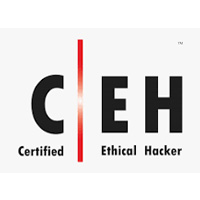
1.CERTIFIED ETHICAL HACKER(CEH)
CEH is designed for security experts to learn the hacking techniques of real threat actors so they can better prepare for the threats and identify the vulnerabilities before they are exploited. Essentially, this is an offensive security certification. Once you achieve the CEH certification, you can pursue the title of CEH Master by completing a practical evaluation that tests your skills in real-world situations.
-
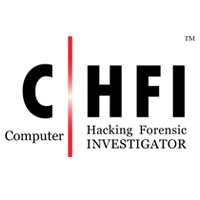
2. Certified Hacking Forensic Investigator (CHFI)
Whether your goal is to work for law enforcement or to help an organization with internal investigations and audits, CHFI will prove your knowledge of the forensic process, including evidence gathering, data recovery and analysis.
-
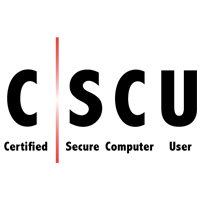
3. Certified Secure Computer User (CSCU)
CSCU is an introductory certification to basic security awareness and fundamental security knowledge. It will help prove that you can limit your exposure to the common threats that users face online like identity theft, e-mail hoaxes, hacking and social engineering attacks, among others.
-
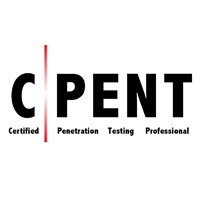
4. Certified Penetration Testing Professional (CPENT)
CPENT is designed to test your penetration testing expertise. With this certification, you prove that you have what it takes to bypass the perimeter security of an enterprise network, pivot into other subnetworks, design exploits, and ultimately defend your enterprise from these attack techniques. Successfully passing this certification at a 90% or higher also gives you the LPT Master certification.
-
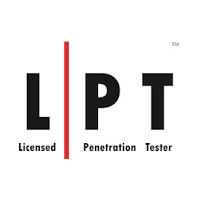
5. Licensed Penetration Tester (LPT)
This 18-hour long practical examination is designed to separate the masters from everyone else. You will be required to demonstrate mastery in advanced pen-testing techniques and tools in real-life scenarios. It is an intensive exam designed to push you and prove that you have what it takes to do penetration testing in the real world.
-
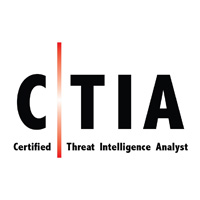
6. Certified Threat Intelligence Analyst (CTIA)
CTIA is a “comprehensive, specialist-level program that teaches a structured approach for building effective threat intelligence” including planning and reporting on threat intelligence as well as addressing all stages of the Threat Intelligence Life Cycle.
-
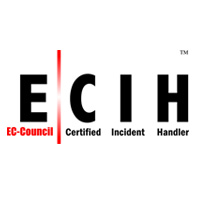
7. EC-Council Certified Incident Handler (ECIH)
ECIH requires a strong understanding of the nine stages of incident handling to minimize the impacts and loss following security incidents in the enterprise.
-

8. Certified SOC Analyst (CSA)
The SOC is one of the most important teams in an enterprise security program. They are on the front lines of incident response monitoring and triaging alerts to catch security incidents before they do any damage. This certification, perfect for Tier 1 and Tier 2 analysts, shows that you have the know-how to function in a dynamic enterprise-level Security Operations Center with an entry-level or intermediate-level skillset. A good candidate for this exam will understand log management and correlation, SIEM deployment, advanced incident detection, and incident response.
-
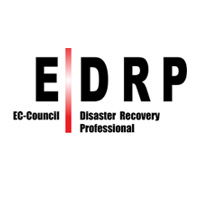
9. EC Council Disaster Recovery Professional (EDRP)
When disaster strikes your organization, you must rely on skilled execution of Business Continuity and Disaster Recovery plans. EDRP is a certification that validates a candidate’s ability to plan, strategize, implement, and maintain a BCP and DRP.
-
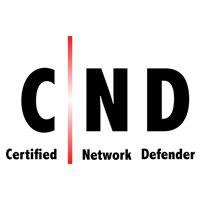
10. Certified Network Defender (CND)
CND is designed for network administrators to learn how to make their networks more resilient against attacks and to detect and respond to intrusions. Essentially, this is a defensive security certification.
-
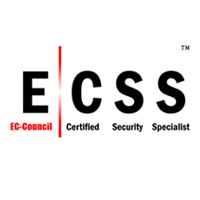
11. EC-Council Certified Security Specialist (ECSS)
ECSS continues where CSCU left off by testing your knowledge of information security. Specifically, you will be expected to understand how to protect data against confidentiality, integrity and availability attacks as well as utilizing proper access control to keep data secure.
-
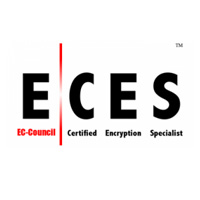
12. EC-Council Certified Encryption Specialist (ECES)
ECES will prove your knowledge of the field of cryptography. You will be expected to demonstrate your understanding of the various encryption algorithms as well as how these ciphers are used in Information Technology such as disk encryption and VPNs. With the knowledge gained from studying for this certification, you will be better prepared to select and deploy appropriate encryption technology for your organization.
-
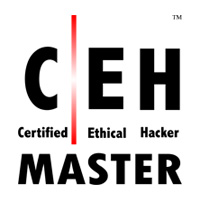
13. CEH(Master)
CEH Master is the brainchild of our CEO, it is the next evolution for the world-renowned Certified Ethical Hacker program, and a logical ‘next step’ for those holding this prestigious certification.
-
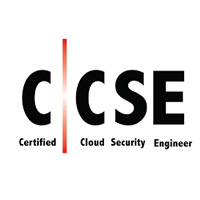
14. Certified cloud Security Engineer(C|CSE)
EC-Council’s Certified Cloud Security Engineer (C|CSE) course is curated by cloud security professionals in association with renowned subject matter experts to deliver a mix of vendor-neutral and vendor-specific cloud security concepts. The vendor-neutral concepts focus on cloud security practices, technologies, frameworks, and principles.
-
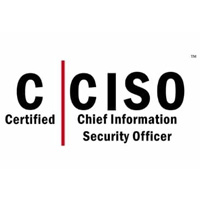
15. Certified Chief Information Security Officer(CCISO)
The goal of this certification is to give the security executive all of the skills necessary to strategically lead the security efforts of the organization and ensure that those security efforts stay in line with the overall business strategies and objectives.
-
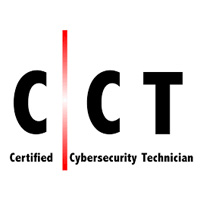
16. Certified Cybersecurity Technician(C|CT)
The Certified Cybersecurity Technician (C|CT) is an entry-level cybersecurity program created by EC-Council, the creator of the Certified Ethical Hacker (C|EH) certification, to address the global demand for a qualified cybersecurity workforce. C|CT to provide individuals starting their careers in IT and cybersecurity with a certification that validates their hands-on technical skills.
-

17. Web Application hacking & Security
EC-Council’s Web Application Hacking and Security is a specialization certification that enables you to play, learn, hack, test, and secure web applications from existing and emerging security threats in the industry verticals.
-
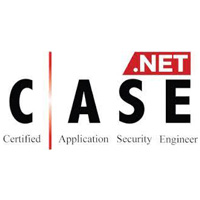
18. Certified Application Security Engineer .Net (CASE .Net)
CASE .Net tests the knowledge and skills of a developer to implement security throughout the SDLC, specifically with the .Net application platform.
-
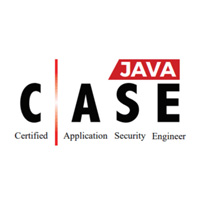
19. Certified Application Security Engineer Java (CASE Java)
The CASE Java certification tests the knowledge and skills of a developer to implement security throughout the SDLC, specifically with the Java application platform.
-
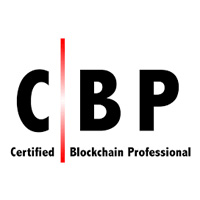
20. Blockchain Certification Courses
The blockchain certification program helps the learners start from the fundamentals and then cover all the technical and functional aspects needed to build any blockchain solution using the best tools and techniques in the industry. In this program, they will build smart contracts, bitcoin wallets, create transactions, fabricode and more.
-
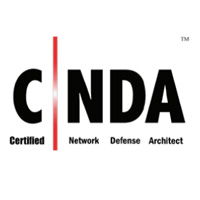
21. Certified Network Defense Architect (CNDA)
The Certified Network Defense Architect (CNDA) certification, which has been designed specially government/military agencies, certifies individuals in the specific network security discipline of Ethical Hacking from a vendor-neutral perspective. The CNDA certification will fortify the application knowledge of security officers, auditors, security professionals, site administrators, and anyone who is concerned about the integrity of the network infrastructure.
-
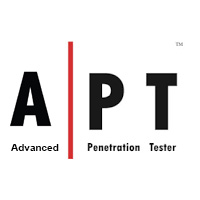
22. Advanced Penetration Testing (APT)
The Advanced Penetration Testing course teaches the cyber-attack lifecycle from the perspective of an adversary. Become more familiar with the most widely used penetration-testing tools, manipulate network traffic, and perform web application attacks such as cross-site scripting and SQL injection.
-
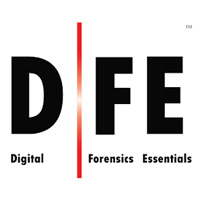
23. Digital Forensics Essentials (DFE)
This course will introduce learners to Computer Forensics Fundamentals as well as the Computer Forensics Investigation Process. Plan to learn about Dark Web, Windows, Linux, Malware Forensics, and so much more! The interactive labs component of this course ensures that learners receive the hands-on, practical experience required for a future in digital forensics.
-

24. Network Defense Essentials (NDE)
The purpose of the NDE certification is to recognize the competency and expertise of a professional in network defense and information security skills thereby adding value to their workplace and employer. By hiring candidates certified in Network Defense Essentials, employers can expect a foundational level of knowledge surrounding network defense essential concepts and hands-on experience to increase productivity. Educational institutions can offer increased value to students by providing them these essential skills to build their career in the corporate world.
-
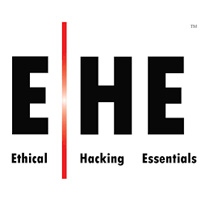
25. Ethical Hacking Essentials (EHE)
Ethical Hacking Essentials is an introductory cybersecurity course that covers ethical hacking and penetration testing fundamentals and prepares learners for a career in cybersecurity. This course will introduce learners to computer and network security concepts such as threats and vulnerabilities, password cracking, web application attacks, IoT and OT attacks, cloud computing, Pentesting fundamentals, and more.




